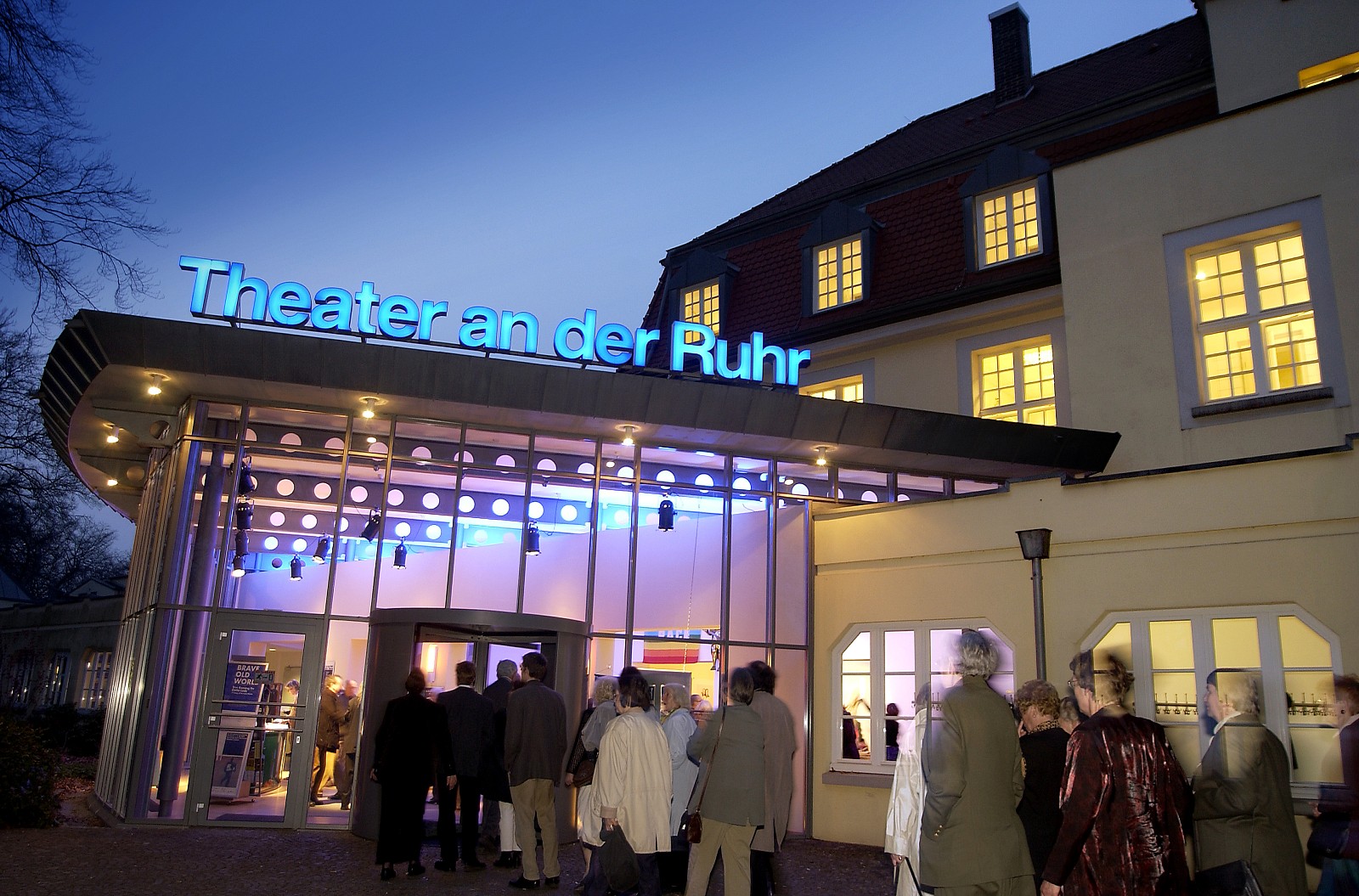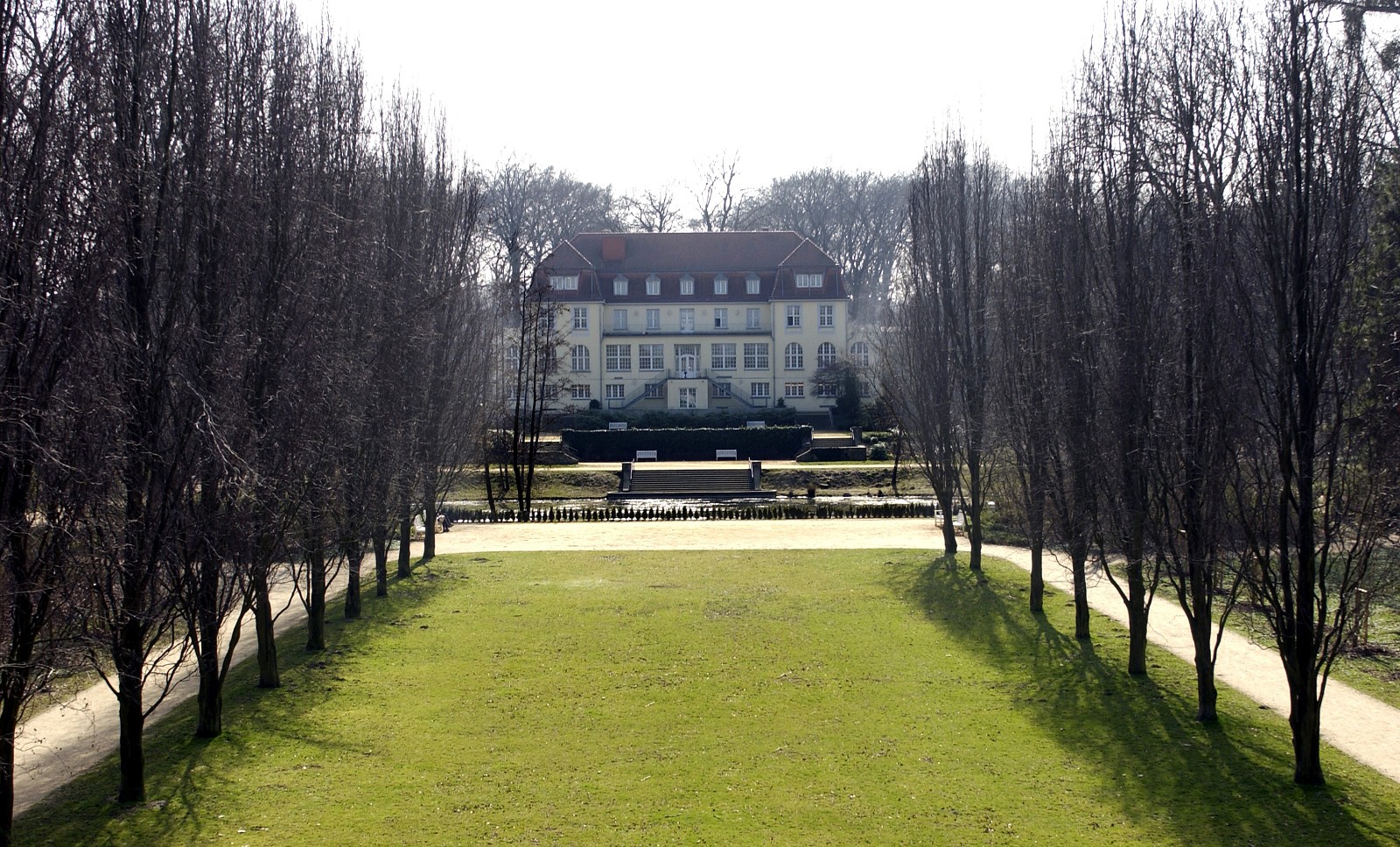Theater an der Ruhr
Theater an der Ruhr was founded in 1980 as an alternative model, an ensemble theater of a new type. It was an attempt to find its very own answer to the debate about structures in the theater landscape in Germany, which is dominated by municipal theaters, and which continues to this day.
Everything different since the season 23/24
We have opened a new chapter in the more than forty-year history of Theater an der Ruhr - and are continuing this history under the sign of radical change. At the beginning of the 23/24 season, the Theater an der Ruhr invited audiences to three concentrated theater events under the heading of a theme that will shape the entire season: The theater is thus treading a completely new, radical path in Germany's theater landscape. We have worked intensively on the theme of RAUSCH and have created three illuminating and at times literally intoxicating play islands, which have become unforgettable experiences, especially thanks to our audience.
We will be continuing this concept in the 24/25 season. After the summer vacations, there will once again be an open-air festival lasting several weeks from 23 August 2024, with two premieres as well as concerts, workshops, discourses and many other exciting program items. The next Spielinsel will start at the beginning of 2025 on the premises of the theater, with Philipp Preuss, Roberto Ciulli and Anagoor directing. The supporting program will encompass the entire theater, from the carpentry workshop in the basement to the fundus in the attic. We will continue in the summer of 2025, taking advantage of the late vacation and playing open-air again.
Translated with DeepL.com (free version)
These three theater islands are concentrated but playful assemblages of artistic work and social exchange. They are intended to bring us into contact with each other and to re-locate the house in the social fabric as a collective space for thought and encounter. Together with you, we would like to explore which deeper phenomena, formative forces and longings penetrate to the surface of our togetherness.
The model

For the founders Roberto Ciulli, Helmut Schäfer and Gralf-Edzard Habben, three essential ideas were central: the primacy of art over the apparatus, the idea of the ensemble, which includes all members of the theater, with equal contracts and the idea of travel, the theater has now been to more than 50 countries and has brought artists from these countries to Europe and Mülheim.
Today, the theater's headquarters in the historic Art Nouveau building in Raffelbergpark is a place for contemporary theater and art that defies fashionable trends and creates open, multilingual discourse and international encounters - a social space for diversity and participation.
In 2001, Sven Schlötcke became managing director, dramaturge and member of the artistic direction. He established long-term participatory projects, such as the intergenerational citizens' stage VOLXBÜHNE and a working area with professional projects for children and young people, as well as ongoing collaborations and co-productions with international and national artists and institutions.
In the 19/20 season, director Philipp Preuss, who has directed at the Schaubühne Berlin, Schauspiel Leipzig and Volkstheater Vienna, among others, was appointed artistic director. His work is characterized above all by a high degree of interdisciplinarity, whereby the references to the visual arts are also formative.
The model of collective artistic program work was further developed in a process of generational change. In place of the three-member artistic direction, the Artistic Program Team has been established since summer 2024, comprising Constanze Fröhlich, Kara Handgraaf, Alexander Weinstock, Helmut Schäfer and Sven Schlötcke. A representative of the ensemble is also involved at regular intervals. In addition, the work of the artistic program team is accompanied by a rotating “Outside Eye” in order to regularly reflect on the artistic work and development from a perspective that is not constantly involved. All (essential) central artistic decisions are made collectively in consultation with the artistic director.
Building on key ideas from the founding, such as concentrated programmatic work that focuses on art rather than the apparatus, thematic cycles have been at the heart of the work since the 2023/2024 season, replacing the traditional repertoire. Three thematic events, each lasting several weeks, with several theater projects, discourses, workshops, visual art and other participation-oriented formats on a theme that underpins the season determine the content and aesthetic research work. In between seasons, the focus shifts to target group-oriented projects, such as international series or projects for children and young people.
For all their diversity, the performances of the Theater an der Ruhr are based on the idea of the ensemble, the collective intelligence, and see themselves as political in the sense of a communicative, public process whose essence lies more in dreams, in drafts of worlds that cannot be found in day-to-day politics.
The Place

The Theater an der Ruhr is located in a former brine bath in Raffelbergpark on the outskirts of Mülheim an der Ruhr. It is a place of encounter, of dialogue, a house that is open to everyone. The foyer is permanently transformed from an exhibition space to a place for receptions or a meeting place for a young audience. People from all over the world and of all ages come together here, making the house a lively place of mutual acquaintance and exchange.
At the beginning of the 20th century, the Solbad was built on the lands of the historic Raffelberg estate. The Theater an der Ruhr moved into the Kurhaus in 1981 and used the old Kursaal as a performance venue. From 1994 to 1997, the listed building was renovated and converted into a permanent venue. Today, the theater hall offers space for 200 spectators and about 50 permanent ensemble members work in the rooms of the former Kurhaus. Since its reopening, the Theater im Raffelbergpark has developed into a unique cultural venue for the Ruhr region, which has established itself as the "other" theater in the region and throughout Germany thanks to its historic ambience in the listed park landscape and its range of content.